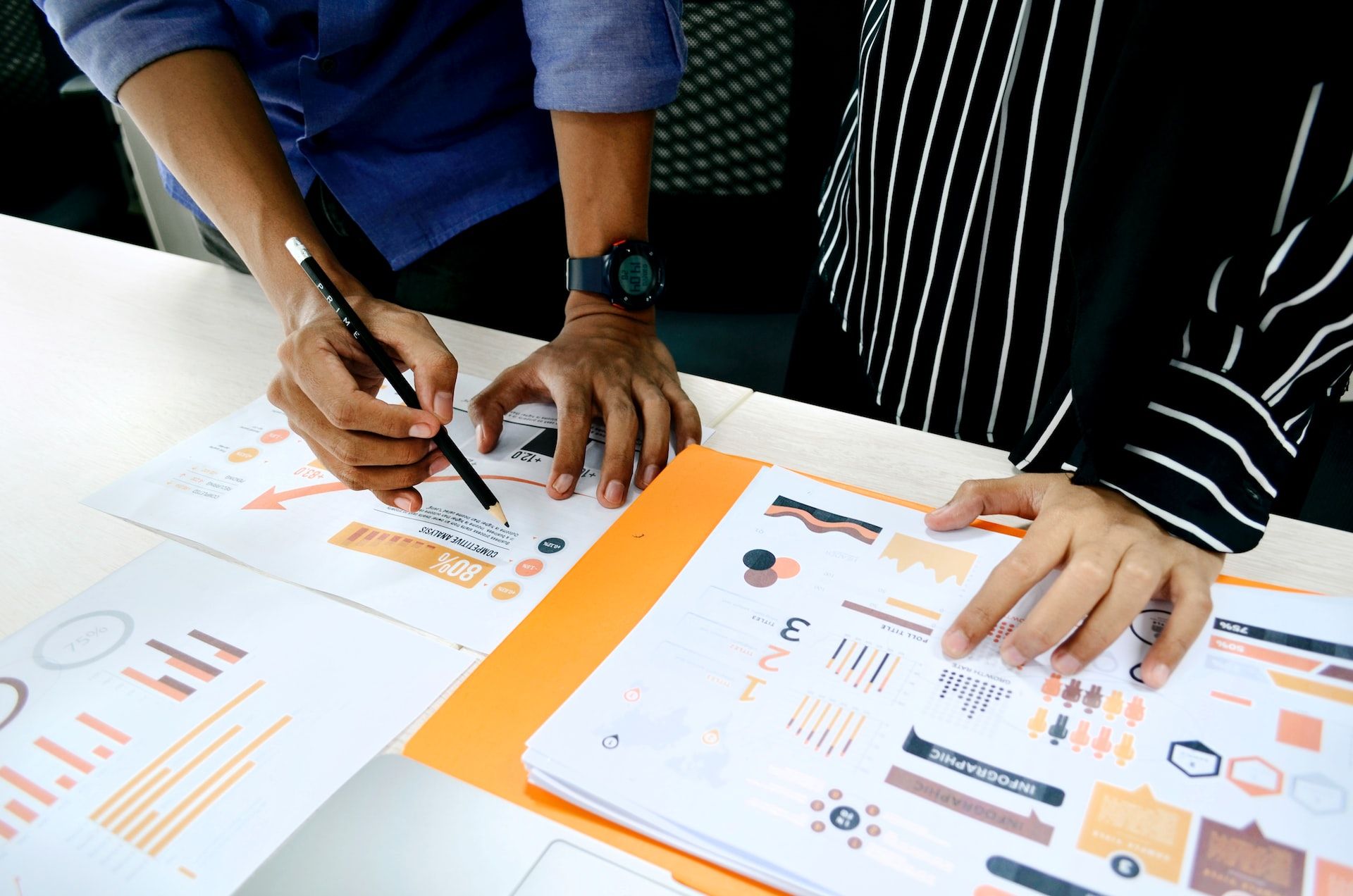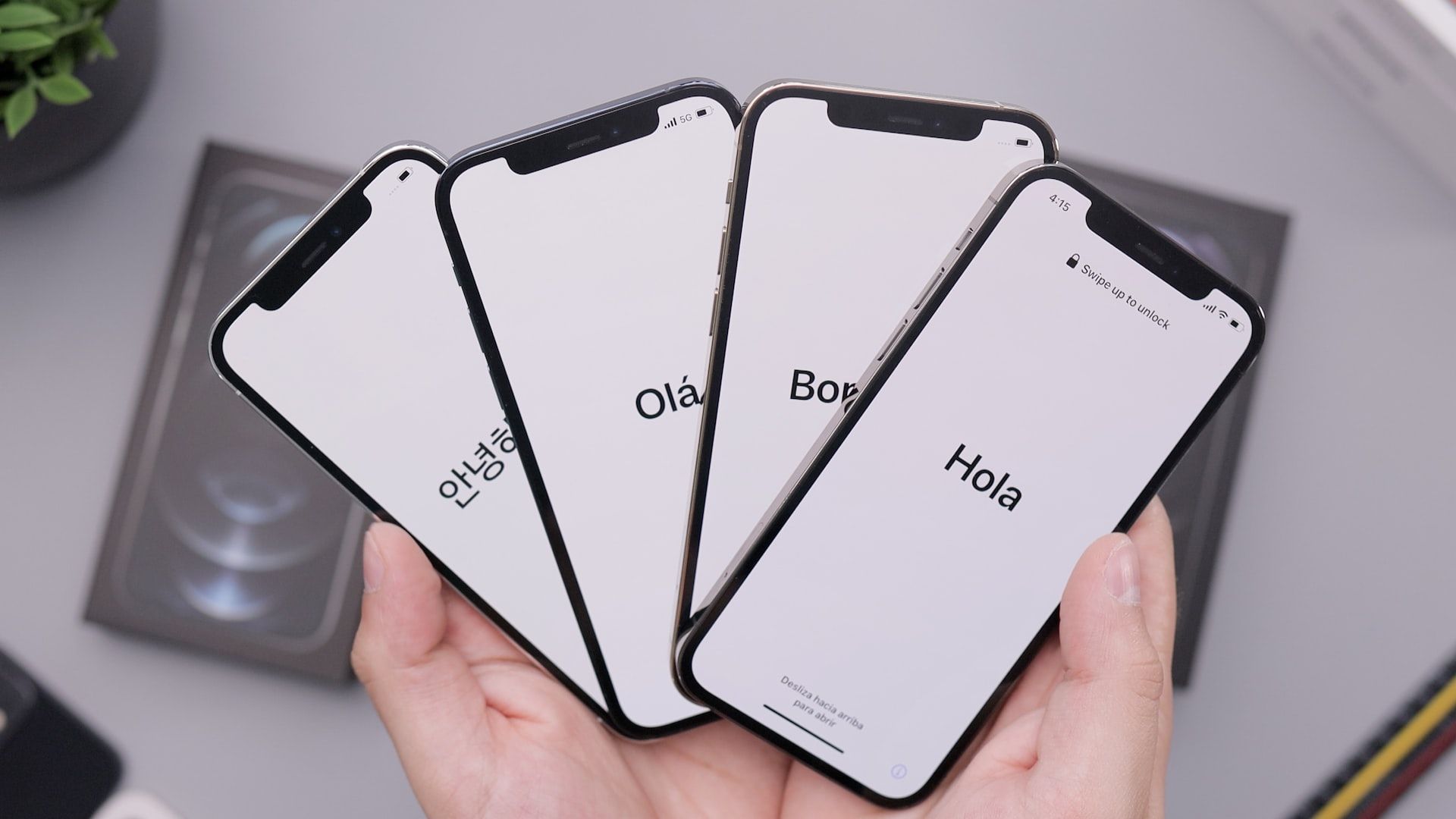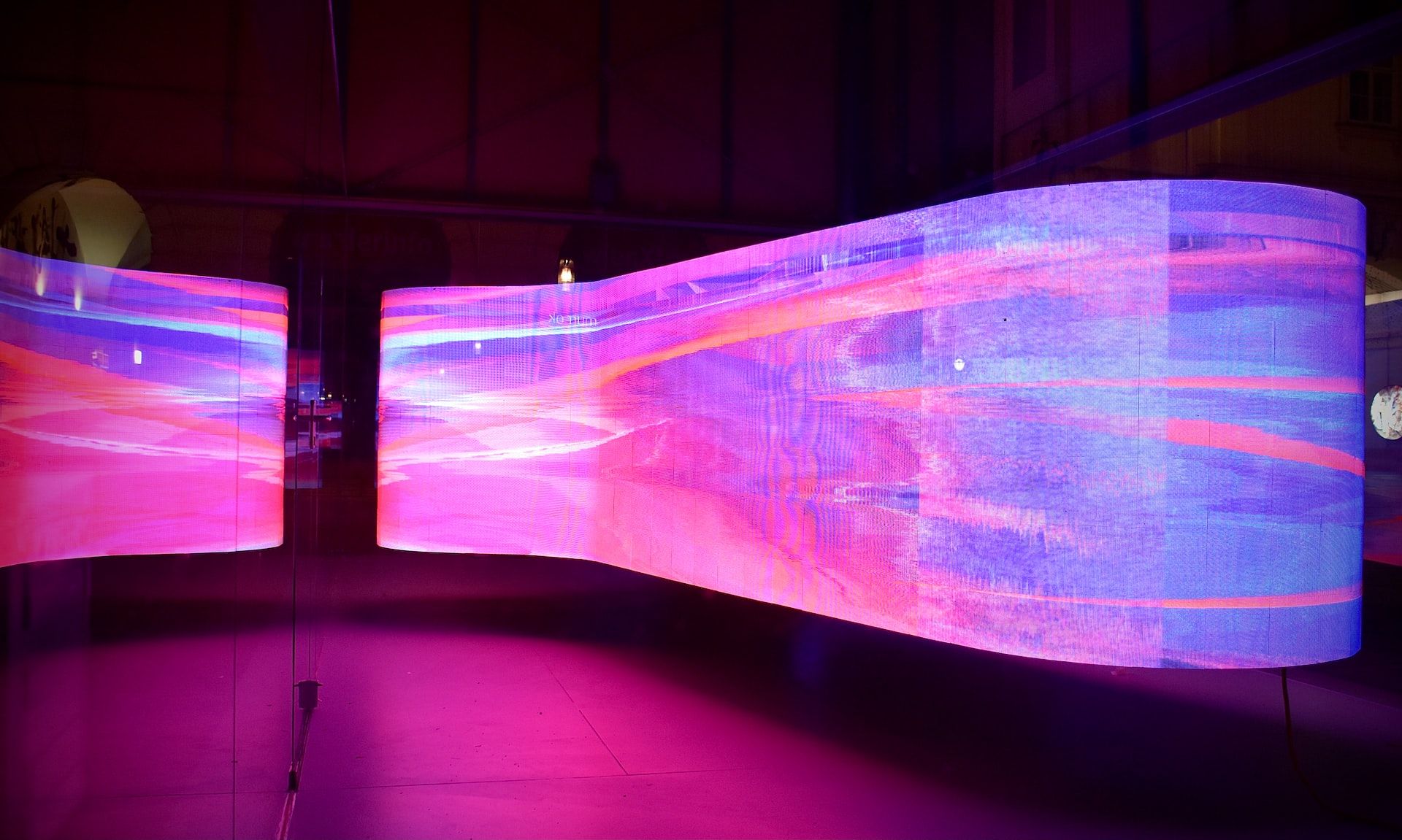With competition for event attendance growing ever fiercer since the pandemic, it’s more vital than ever to make your event stand out by meeting your attendees’ needs and desires better than anyone else in your market. We’ve written in-depth articles about creating unforgettable experiences, and we're always keeping our ear to the ground when it comes to what others in the industry are doing.
Here, we’ve asked five experts, who joined us on the Let's Do London stage at International Confex 2023, how - and why - we should be putting experience at the heart of everything we do.
Understand your audience's desires
A reminder of the first thing we learn as an eventprof: events are a waste of time unless they serve a purpose for the people who attend them - which means knowing your audience is key. Manuela Cadarso, Head of Projects UK at Cheerful Twentyfirst, emphasises that when designing an experience, the key factor should be “understanding the audience, their priorities, and what motivates them to engage” with your content.
This doesn't just apply to your audience en-masse, but to individuals. The most successful events are often ones which allow individuals to craft their own programme, and get what they want out of the day. This could mean having pick-and-choose workshops, opt-in networking sessions, or repeated content that allows for more flexibility in the day.
Gainsight's Pulse Europe, an event for the customer success, product, and community industry, knows its audience incredibly well - so well, in fact, that despite train strikes, its 2022 event had over 1000 in-person attendees. This might be down to the excellent conference sessions, but we suspect it has just as much to do with them meeting the desires of their audience in networking and connecting. Their model of giving attendees the option to catch up on all of the sessions after the event is one that promotes flexibility-first at events.
Of course, this doesn't work for every event type, or every audience, but it's an example of going the extra mile and winning business by putting the audience first. It allows Pulse to be seen as a community-building event with a truly epic party (think ice rinks and London skyline views), and unmissable moments featuring micro-pigs. Count us in!
And make the most of your attendee data
If you don't understand what brings attendees to your event and how they interact with it, you’ll be fighting a losing battle when it comes to reporting and proving ROI. As Lizzy Eaton, Founder of Oddity Events, says: “The pre-event work is about collecting data and insights about why this event is important for your attendees specifically. Then at the event you can make sure that the content and experience is relevant for your market, based on what they’re looking for.”
This could be done through asking attendees what topics they're interested in, and what they're looking to get out of the event, when they complete the registration process. Once you have this information, you'll be able to send them customised communications, from panel announcements to exclusive networking opportunities, exhibitor details, and opportunities to sign up for workshops that match their interests.
Make sure that you also identify data points in advance of the event to track and inform your strategy after the event - this could be through beacon tracking (where GPS is used to monitor where attendees spend most of their time), or through having scanning systems at content sessions. Don’t be scared to ask attendees directly what they would like to see next time as well - this is hugely valuable data and will help to shape the experience for future events. It will also give you additional ideas for data points to collect the next time round.

The event experience begins long before the event itself
As any eventprof worth their salt knows, an event doesn’t start at the check-in desk at 9am on event day. Lizzy says: “If you're asking attendees to give up their time to come to your event, you need to make them part of a community, which starts with pre-event engagement to show them it’s worth their time.”
This could look like creating a buzz on social media to drum up some FOMO (Fear Of Missing Out), or, as Lizzy suggests, looking at what "personalised nuggets of information" you can offer your attendees that will make your event a must-attend for them. Drop hints about speakers, share sneak peeks of experiences and technology, and make sure you highlight any exclusive opportunities that will be happening on the day.
Importantly, do it from the beginning of your attendees' journey. Sophie Ahmed, SVP of Marketing at Hubilo, advised: “You've got to start from the first touch point: the first email invitation, the first time your prospective attendees see something on social media, that's the moment you've got to grab their attention. Even if it's six months out, it has to be an experience from that moment on.” Check out our tips for using social media to maximum effect in the build up to the event, as well as during and afterwards.
And post-event is an equally critical time for engaging attendees
Engagement shouldn’t tail off as soon as your event ends: this is a crucial time to tap into lead-gen opportunities, build on your event’s reputation, and gather feedback for future events. “Post-event, it's about maintaining a campaign of accountability,” says Lizzy. “Reinforce the takeaways from the event, and remind attendees of the next steps and calls to action. It's about treating the event as a sort of campaign, where insights are key.”
In fact, as Sophie states, every day is event day - or at least a day to keep your event in your audience’s minds: “If your attendees were at last year’s event, the experience has got to begin from the last day of the last event - it’s about having a 365 mindset.” Send follow-up emails, repurpose content to create write-ups and social bites, and keep applying the same call to action throughout, whether that's driving them to your site, or getting them to sign up for the next event.
As well as keeping your attendees engaged, this ties into the concept of extending the life of your event. The more you can repurpose your event content, the wider an audience you'll bring in, which in turn leads to more leads for future events. For full-scope guidance on maximising your event potential, check out our complete guide to leveraging your event content after the event ends.
Tap into events as a marketing tool:
For more insights read our deep dive into events as a key part of your marketing strategy. We've listed strategies, examples of experiences working in connection with marketing, and how to understand the impact of your efforts.

Connections come first
“Organisers often focus too heavily on education being the main draw for attendees,” according to Adam Parry, CEO of Event Tech Live. “We often forget that actually a huge amount of the value is just people being in the same place at the same time. To be able to catch up and network and meet new people is one of the primary goals of events.”
In short, don’t try to shoehorn in too much content and risk tiring your attendees: the last thing you want is for them to leave fatigued and frustrated at the lack of time or opportunities to connect with others. Adam highlighted an event that epitomises the connection-first mentality: RecFest. This event, held in the UK and US each year, takes the form of a festival, and brings people in the recruitment industry together to network and build business relationships, all in the context of some fun, laid-back music.
Models like RecFest demonstrate a new model where business happens organically because the experience encourages interaction. This can be applied to any event: give longer for lunches, start content sessions 10-15 minutes apart, and build in opportunities for interaction - like ice breaker challenges and speed networking over coffee, or a unique post-show reception with a surprise guest, awards ceremony, or activity. The more opportunity for connection between guests, the more attendees will connect with the event itself.
Connect the dots with our guide to event experiences
Event experiences go much deeper than just content sessions and coffee breaks: check out our guide to giving guests an experience they won't forget.
The experience should be for everyone
It should go without saying that inclusivity is paramount, but too often when planning experiences, universal access isn’t taken into account. Above all, your event experience shouldn’t come at the cost of reminding guests that they have a disability or additional requirements.
Lizzy recounted a lesson she’d learnt from disability rights organisation Purple, who run the annual inclusion initiative Purple Tuesday: “A person who is disabled might want to come to an event and be spontaneous about it [rather than having to email back and forth with the organiser to prepare, for example], but will be put off if you haven't made it easy for them to find out whether they can be spontaneous.”
Whether you're planning a meeting, or a huge installation, like Refinery 29's 29 Rooms, for example, make sure that you communicate accessibility measures you've put in place with your guests, so they can make the decision to attend with less effort and fewer hurdles. By letting them know what experience they can expect, you're giving guests the ability to plan their attendance, and ask for additional adjustments if need be.
As Manuela put it, guests may have certain expectations or needs, such as “flexibility in their attendance”. Having options for attendees to tune in remotely, while being able to participate and get real value from the experience, is a good option: check out our ultimate guide to hybrid events for tips on how to integrate audiences and more. It's essential to bear in mind, however, that the level of experience and care towards your guests should be the same, regardless of whether they're attending in-person or virtually: read more about meeting this balance in our blog on engaging both audiences at hybrid events.
Keep inclusion at the top of your priorities
Want more guidance on making your events accessible? Read our blog with Isaac Harvey on making events more inclusive and welcoming for all.

Dive into the details to create a unique experience
The most crucial part of an event should be the impression people take away from it. In our article on the Experiential Imperative, we’ve dived into the ins and outs of creating an unparalleled experience, from incorporating cutting-edge technology, to having out-of-the-box activities or intriguing ice breakers to accompany your sessions.
Some brilliant examples we've seen include 2017's DockerCon, a conference for software developers which featured a live game in which 5000 conference attendees worked together and competed to complete challenges using the brand's software features. This experience involved in-person attendees and global participants interacting, and made for an immersive experience for everyone. At a recent event managed by Hire Space, a live mural artist painted the guests at a sit-down gala-dinner in front of them, which led to a whole lot of social sharing and a unique souvenir.
As Tinique Hay, Founder of Hay Events, told us: to create an unforgettable experience for your event attendees, you need to consider "the five magical senses". Think about what you want your guests to see, hear, smell, taste, and feel at your event, and build the event set-up around those experiences. First impressions are key: you want to captivate guests from the start, so make sure that everything from the entrance to the registration desk is part of the experience, with greeters and branding to signal the start of something special.
Experience isn't a finite metric, and the need to constantly experiment and innovate is what keeps the industry exciting to both eventprofs and attendees. From investing in experience-enhancing technology, focusing on appealing, easy-to-understand way-finding, and designing a schedule with natural connections and individual flow in mind, there’s plenty that can be done to make the attendee experience energising and engaging.
“By paying attention to the little details, incorporating technology, and making attendees feel valued, companies can create an experience that will be remembered for years to come,” says Emily Simmons-Wright, Business Development Manager, Twickenham Stadium. This can seem daunting when time is already hard to come by, so knowing where to bring in additional resource is valuable.
Extend your resources
We know it can be difficult to find time to consider every element of event experiences, particularly with budgets and teams feeling the stretch. Our service Hire Space 360 offers unlimited access to experts who can support you on everything from supplier sourcing to on-the-day set-up and delivery. If you're on the lookout for additional resource for your events, get in touch to see how we can help.
Curating an exceptional experience at events is increasingly important to gaining and retaining clients, but it's becoming increasingly difficult to stand out. Hearing the insights of others in the industry is one of the best ways to gain new ideas to apply to your own events. Sign up to our newsletter to read more content bringing together the ideas of thoughtleaders in the industry.
Stay ahead of the curve
Sign up to our mailing list to be the first to hear about new content, events, and news in the events industry.
Sign up now!
About the contributors
Sophie Ahmed, SVP of Marketing Strategy, Hubilo
With 24 + years in global events and media, Sophie has recently developed a strong interest in event tech and the power technology has to enhance the event offering. She was co-founder and previous CEO of The Virtual Events Institute.
Manuela Cadarso, Head of Projects UK, Cheerful Twentyfirst
Manuela Cadarso is the Head of Projects UK for global brand experience agency Cheerful Twentyfirst. With more than a decade of experience in international event and campaign delivery, Manuela’s understanding of events as a driving marketing channel is second to none. As well as being named one of the UK’s top event professionals in 2020 through C&IT’s 35 under 35 A-List, Manuela previously held a board position on the International Live Events Association from 2019 - 2021 as Sustainability and Innovation Ambassador.
Lizzy Eaton, Founder, Oddity Events
After ten years of industry experience, Lizzy set up Oddity Events & Marketing in the summer of 2018. Lizzy is passionate about incorporating impactful events into marketing and communications strategies, and has worked on high-profile projects for some of the most recognised companies including Google, Facebook, and Visa.
Tinique Hay, Founder, Hay Events
An award-winning Entrepreneur and Event Business Owner with 9+ years of experience established within the meeting, conference and private event sector. Driven by the love and passion of working within the Event Industry alongside building an everlasting family legacy led to the birth of Tinique’s Events Management company Hay Events. A strong advocate for entrepreneurship, Tinique believes once you align your skills and passion, the main purpose of starting up a business will shortly follow.
Adam Parry, Co-founder, Event Tech Live
Adam Parry is the editor of eventindustrynews.com, a leading online publication covering the latest news and trends in the event industry. With over a decade of experience and passion for all things events, Adam has established himself as a top thought leader in the field, providing insightful commentary and analysis on the latest developments in the industry.
Emily Simmons-Wright, Business Development Manager, Twickenham Stadium
Emily Simmons-Wright joined the Business Development Team at Twickenham Stadium in 2022, establishing new business and opportunities for non-matchday events. Emily holds over 12 years of experience within our industry which has developed a passion around creativity, live experiences, and sustainability within events. By taking a real interest in the opportunities coming into the Stadium, Emily is sure to bring your event to life, exceeding all expectations and working with you to meet your event goals.
Author

Jessamy Cowie
Jessamy channels her passion for sustainability and cultural events into shining a spotlight on innovation and inspiration in the events world, and heading up Hire Space's sustainability committee.


